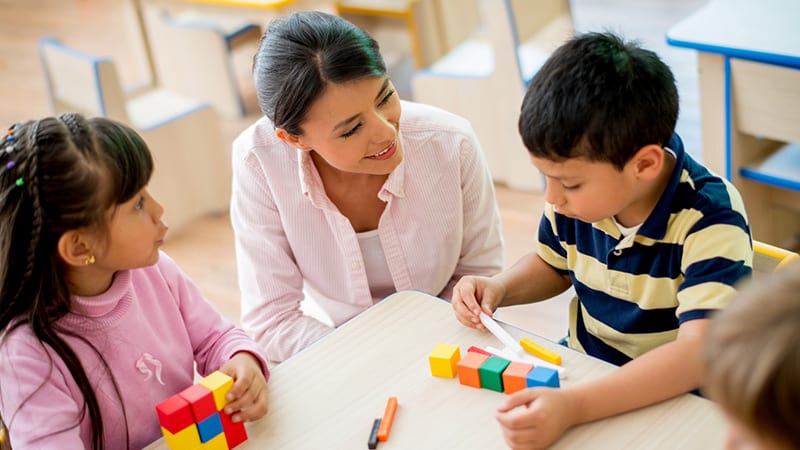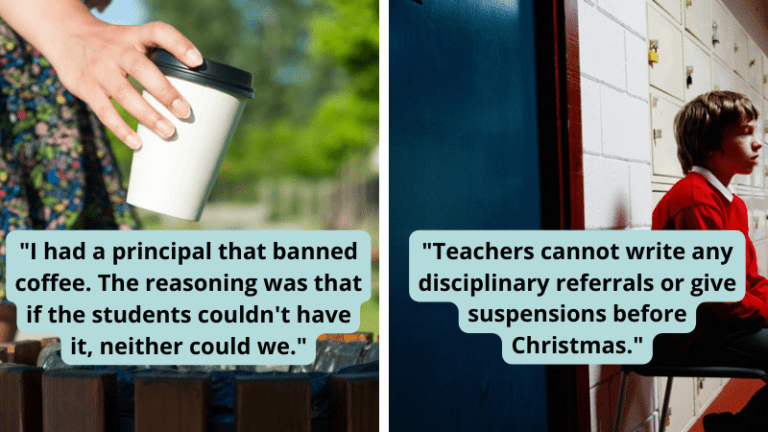I have a son who is in kindergarten at a fantastic public school. They have a STEM lab and an active PTA and a great aftercare program … basically everything you could ask for. And his teacher is phenomenal. During a tornado scare a couple of weeks ago, she texted all the parents pictures of our kids in the hallway, grinning and eating snacks, so we would know that they were safe and not scared. She has innovative ideas, 25 years of experience, and an endless supply of patience and compassion.
Over the past month, the most amazing thing has happened. My son is learning to read. Four weeks ago, I’d give him a three-letter word to sound out and he’d make a guess based on the first or last letter. I showed him “fat,” he said “far.” We tried “kiss,” he said “kangaroo.” Now, he’s achieved that pinnacle of kindergarten greatness: He can read Hop on Pop all by himself. He wrote his own letter to Santa, sounding out the words on his own. I didn’t know they made so many kinds of “Star Wors Blastrs,” but he basically requested an entire arsenal.
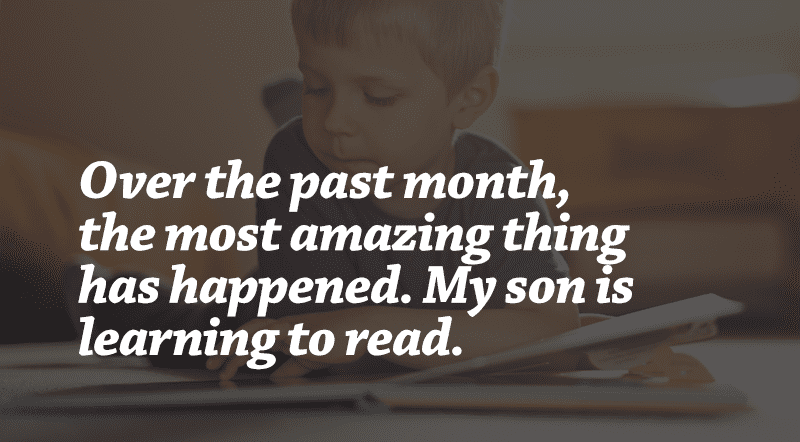
It hasn’t been perfect.
You know, I guess he’s just always been smart. He’s only halfway through kindergarten, but it’s been completely smooth sailing so far. He’s already learning his multiplication tables, and he’s been student of the month twice already and … oh, wait, just kidding. It hasn’t been perfect. It took him a while to settle in and remember how to behave in a classroom, despite multiple years of quality preschool. When he took computerized benchmark testing for the first time, he scored in the THIRD percentile. My kid did worse than 97% of the kindergarteners who took the test. So when his best friend’s mom called me yesterday having a little bit of a freakout, I could relate.
My son’s best friend is an athletic, rambunctious, creative wild man with boundless energy and a great head of hair. He’s clever and funny and brave and outgoing and constantly into something. And yesterday, his teacher told his mother that he might not be able to go to first grade because his reading level is so low. His mom was understandably horrified and devastated. This is her baby, and somebody just told her that her baby is not OK. There’s no way that can be anything other than devastating.
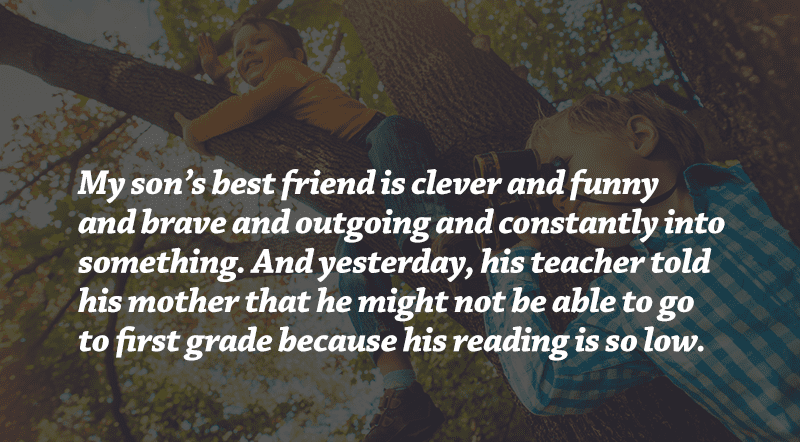
It made me simultaneously furious and grateful.
So I got a series of frantic texts while I was teaching my own third-period class. Maybe he’s dyslexic. The teacher says he’s not trying, but I know he is. Should we get a tutor? What do we do?
It made me simultaneously furious and grateful. Furious that his teacher is forced to put this kind of pressure on a five-year-old and his single mom. Because his teacher’s a smart lady. There’s no way this anxiety is coming from her. It’s coming from the fact that her paycheck—and possibly even her job—depend on this kid being an early reader, since the average age that kids learn to read is six and a half. If he doesn’t learn by the time they do benchmark testing in April, she has failed him as a teacher according to the metric by which she’s assessed.
I was grateful because my son’s teacher doesn’t cave to that pressure. When he scored so incredibly low on the first test, we had a parent-teacher conference. (It was unrelated; everybody had conferences that week.) We asked her if she was concerned about his test scores, and she shrugged and said, “Meh. He’s fine.” And he is. He’s progressing exactly the way a five-year-old should — learning to read, he’s learning to write, and he’s picking a lot of it up on his own because he’s developmentally ready.
His best friend is rowdier and has a harder time sitting still. Like many little kids, my own included, he reaches a point where he can no longer work through his frustration, so he shuts down. And let me tell you, trying to read when your brain is not ready to is incredibly frustrating. So now there’s this awesome combination of frustrated kid, anxious teacher and terrified parent—the perfect recipe for learning, right?
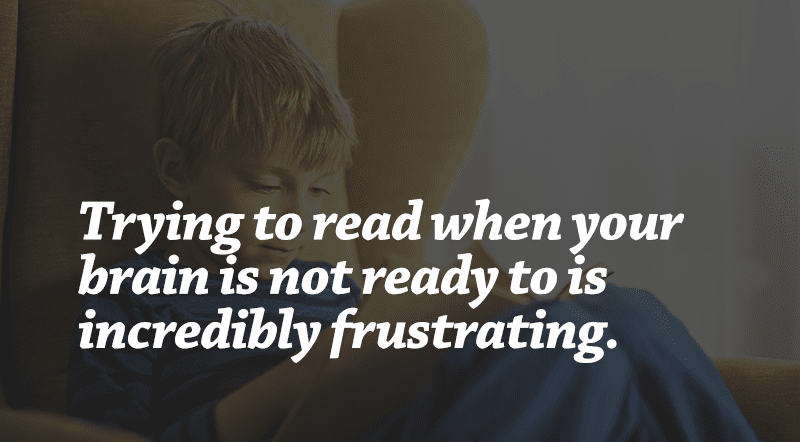
Your kid is fine. It’s the system that’s broken.
Yeah, maybe he’s dyslexic, I told her. But probably he’s not. And no, I don’t think you should get a tutor for your kindergartner to make him spend more time doing something that he’s already starting to hate. He doesn’t need extra help, he needs extra time. Your kid is fine. It’s the system that’s broken, the system that ignores his developmental needs in favor of standardization, the system that confuses rigor with unreasonable expectations.
Reading is going to “click” with him. It’ll probably happen soon, and when it does, it’ll go fast. I’m not a kindergarten teacher, but I’ve seen kids learn to read. It’s like a lightbulb turns on in their brain and suddenly they can do it. But he needs the space and the time and the confidence to let that light come on. Right now, his brain needs to develop by doing the things kindergartners are supposed to do—playing outside, building with LEGO bricks, poking roadkill with a stick. (Come on. Like your kid’s never done that.)
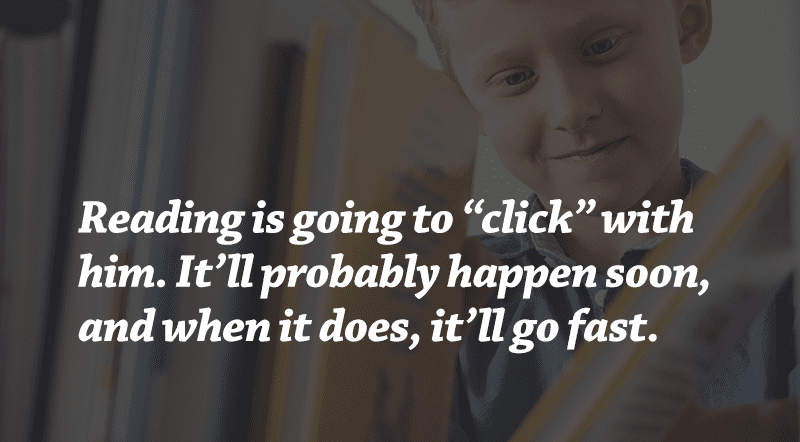
The kids are fine. They’re learning and growing and figuring things out at their own pace, exactly the way kids are supposed to. The standards and the system are broken. And our kids’ continued progress and learning depends on teachers and parents keeping a level head and reasonable expectations, no matter who tries to tell us otherwise.
